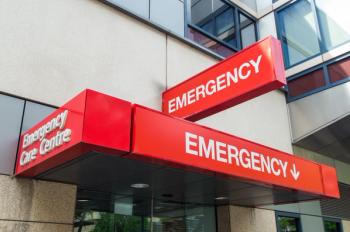
The Psychiatric ER Survival Guide
The psychiatric emergency room (ER) is an intense, stressful work environment where psychiatrists must perform rapid assessments and make swift treatment decisions.
The psychiatric emergency room (ER) is an intense, stressful work environment where psychiatrists must perform rapid assessments and make swift treatment decisions. During psychiatry residency training, the ER provides critical experience that helps sharpen resident’s diagnostic and interview skills, as well as enhance their overall clinical confidence.
Management of acute behavioral emergencies and crisis intervention are frequently employed modalities in the ER. The psychiatric ER is also a major site for psychiatry resident training, and guidelines have been put forth for training in emergency psychiatry for residents.1 The guidelines stress the importance of direct and careful supervision of residents by attending psychiatrists.
This abbreviated “survival guide” was designed to assist residents in their ER training, and came about through experiences working in the psychiatric ER and supervising residents. In particular, residents had certain routine concerns-- some of which I have attempted to address herein. Because the mere threat of malpractice liability has been observed to alter clinical practice among high-risk specialist physicians,2,3 this guide stresses a “clinical risk management” approach, which is defined as “the combining of professional expertise and knowledge of the patient with a clinically useful understanding of the legal issues governing psychiatric practice.”4 This approach stresses good clinical care first, while allowing the psychiatrist freedom from destructive fears of litigation.
This guide consists of but one recommended approach, and should not be considered exhaustive. As the field and clinical science advance, so should this guide, and I am eager to receive and incorporate helpful feedback.
References:
References:
1. Brasch J, Glick R, Cobb T, Richmond J. Residency Training in Emergency Psychiatry: A Model Curriculum Developed by the Education Committee of the American Association for Emergency Psychiatry. Acad Psychiatry 28(2):95-103, 2004.
2. Studdert D, Mello M, Sage W, et al. Defensive medicine among high-risk specialist physicians in a volatile malpractice environment. JAMA. 293(21):2609-2617, 2005.
3. Passmore K, Leung W. Defensive practice among psychiatrists: A questionnaire survey. Postgrad Med J. 2002;78(925):671-673.
4. Simon R, Shuman D. Clinical Manual of Psychiatry and Law. Washington DC: American Psychiatric Publishing, Inc, 2007.
Newsletter
Receive trusted psychiatric news, expert analysis, and clinical insights — subscribe today to support your practice and your patients.







